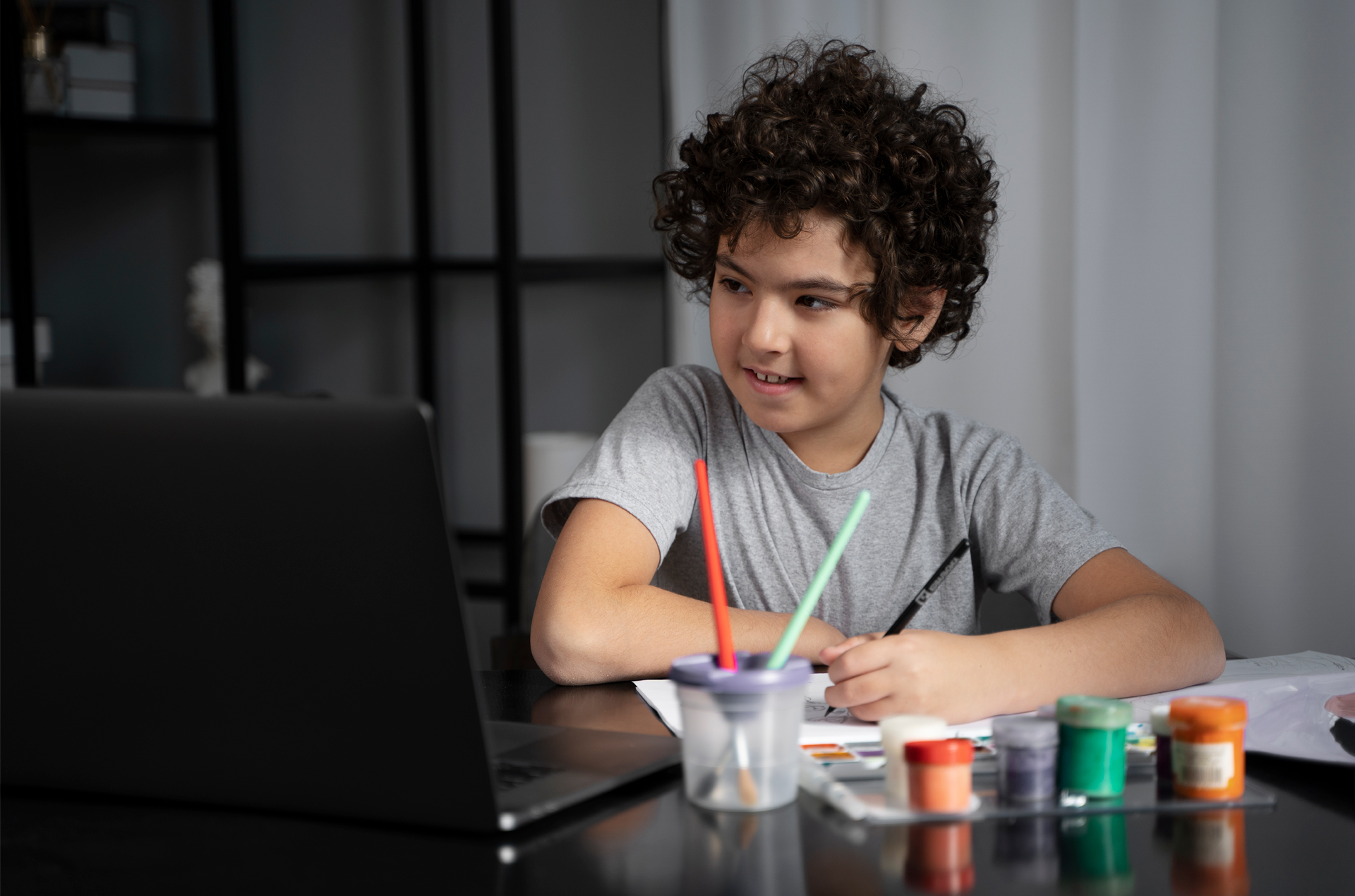Virtual Autism: How Excessive Screen Time Can Affect Children’s Development

In today’s tech-driven world, digital screens have seamlessly woven themselves into the fabric of our everyday routines.From smartphones to tablets, these devices have become more than just tools for adults they’re now a common part of children’s daily lives, offering both entertainment and educational content. A rising concern, termed “Virtual Autism,” highlights the developmental challenges that can arise in young children who spend excessive time on screens during their crucial early years.This phenomenon is raising questions among parents, educators, and healthcare professionals about the impact of digital technology on children’s growth and behavior.
What is Virtual Autism?
Virtual Autism refers to Autism-like symptoms in young children caused by prolonged exposure to screens during critical developmental stages. Unlike traditional Autism Spectrum Disorder (ASD), Virtual Autism is not a neurodevelopmental condition rooted in genetic or biological factors. Instead, it stems from environmental influences specifically, the overuse of digital devices, which can disrupt essential social, emotional, and cognitive development.
The Symptoms
Children affected by Virtual Autism may exhibit behaviors similar to ASD, such as:
- Delayed speech development
- Lack of eye contact
- Reduced social interactions
- Repetitive behaviors
- Difficulty focusing or paying attention
These symptoms often emerge when children spend excessive hours on screens without adequate interaction with caregivers, peers, or their environment.
Why Does This Happen?
The early years of a child’s life play a vital role in shaping their brain development. During this time, children learn through interactions, play, and sensory experiences. Excessive screen time can replace these essential activities, depriving children of opportunities to develop their language, motor, and social skills. For example, a child engrossed in a screen may miss the chance to observe and mimic their parents’ facial expressions or gestures, key milestones in early communication and emotional bonding.
Moreover, the fast-paced visuals and sounds on screens can overstimulate the brain, making it challenging for children to adapt to real-world interactions, which are slower and more nuanced.
The Path to Recovery
The good news is that Virtual Autism is reversible in most cases with early intervention. Here’s how parents and caregivers can support their child’s development:
- Limit Screen Time: Follow age-appropriate guidelines for screen usage. Children under two years should have little to no screen exposure.
- Encourage Real-Life Interaction: Spend quality time with your child through face-to-face conversations, storytelling, and play.
- Promote Active Play: Engage children in activities that involve physical movement and exploration, such as playing with toys, building blocks, or outdoor games.
- Seek Professional Guidance: If you notice autism-like symptoms, consult a pediatrician or developmental specialist to assess your child and create an appropriate intervention plan.
Final Thoughts
While technology offers many benefits, its overuse during critical developmental years can have unintended consequences. As parents and caregivers, it’s important to strike a balance between leveraging the positives of technology and preserving the natural ways children learn and grow. By fostering human connections and providing stimulating, screen-free environments, we can help children thrive and mitigate the risks associated with Virtual Autism.
In the end, childhood is a time for curiosity, imagination, and exploration, a journey best experienced in the real world.
Regards
Dr. Atul Madaan (Autism Specialist)
MAAP, MBA, MPhil (Clin. Psy), PhD (Psy)
Operational Head & Clinical Psychologist- Care For Autism (CFA)
8383849217
www.autismspecialist.co.in
𝐂𝐀𝐑𝐄 𝐅𝐎𝐑 𝐀𝐔𝐓𝐈𝐒𝐌 (CFA)
One-of-a-Kind Assessment & Remedial Training Centres for Special-needs Children.
📌 Ludhiana : 114, Green Field, Kochar Market Road, Near National Lab, 9646443200
📌 Jalandhar : Hoshiarpur Road, Mubarkpur Shekhein Pind, Under Bridge, Near Railway Crossing, 9779725400
#autismdoctorludhiana #autismdoctor #autismdoctorinludhiana #autismspecialist #bestautismdoctor #bestautismdoctorinludhiana #autismbestdoctor #bestautismcenter #bestautismconsultant #autismconsultant #autismludhiana #autismspecialistinludhiana #atulmadaan #dratulmadaan #autismtreatmentludhiana #autismtreatment #careforautism #autismmyths
Contact
Ludhiana
114, Green Field, Kochar Market Road, Near National Lab, Ludhiana (Punjab), India +91 96464 43200
Jalandhar
Hoshiarpur Road, Sheikhen Pind (Under Bridge), Near Railway Crossing, Jalandhar (Punjab), India +91 97797 25400
